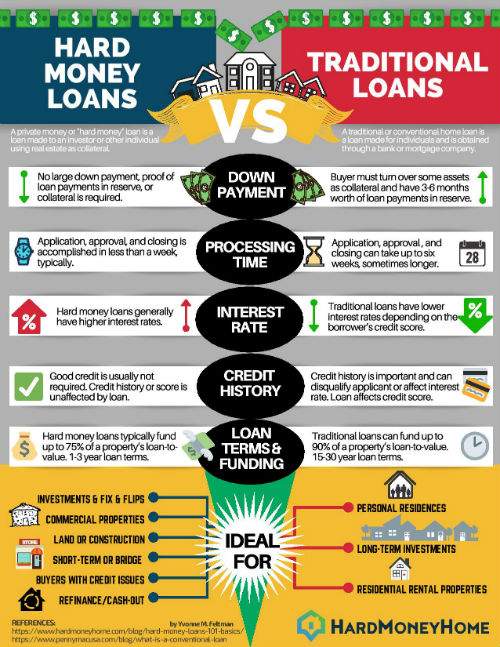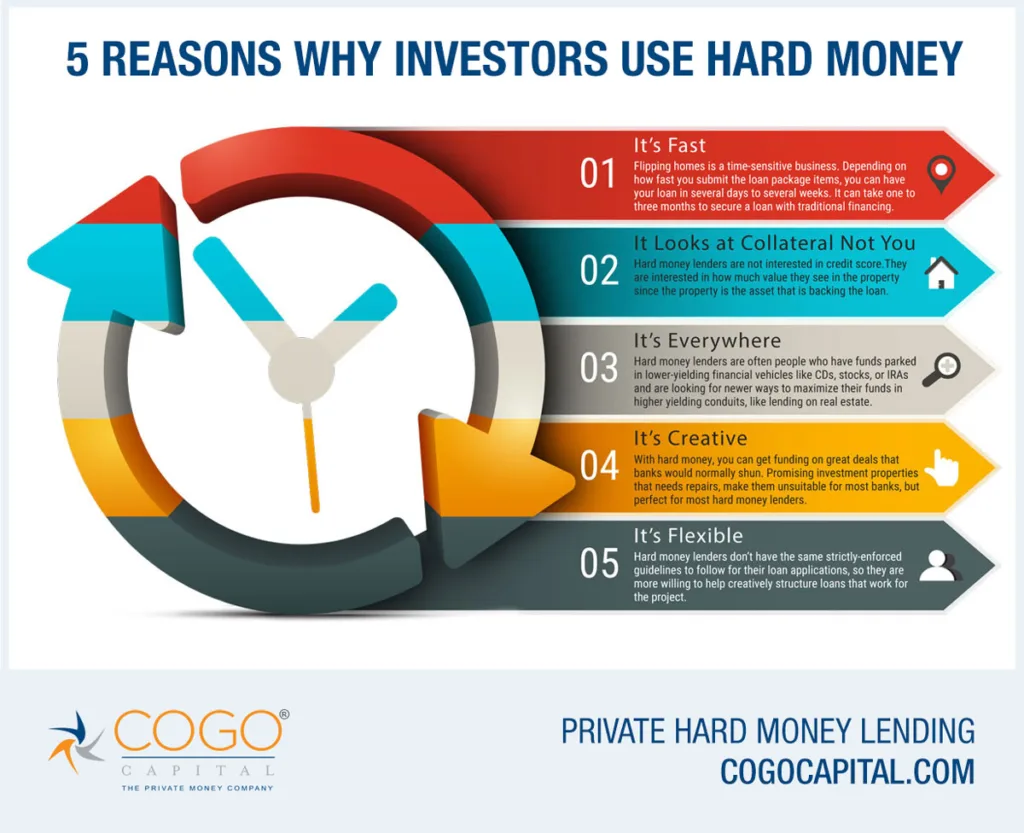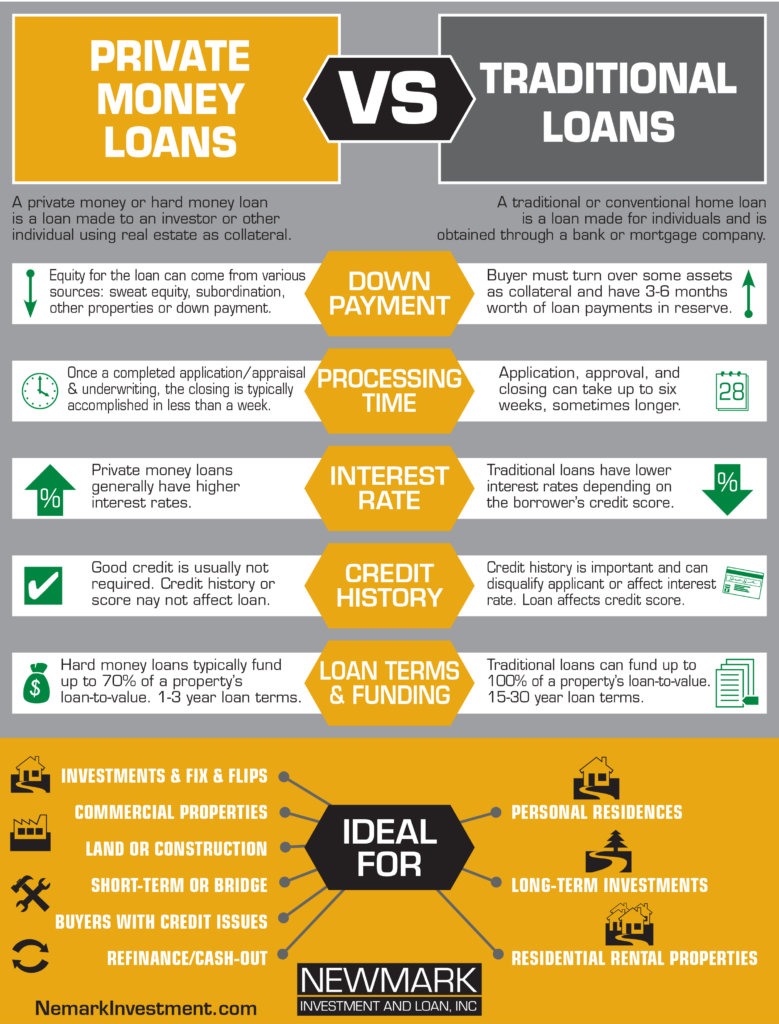When it comes to securing a hard money loan, it’s essential to understand any potential geographical restrictions that may impact your eligibility. While this type of financing can be a viable option for individuals seeking quick and flexible loans, its availability can vary depending on location. In this article, we will explore the concept of geographical restrictions for hard money loans, shedding light on the factors that may influence access to this alternative form of lending. By gaining insight into these limitations, you can better navigate the process and make informed decisions about your financial options.
Understanding Hard Money Loans
Definition of hard money loans
A hard money loan is a type of financing that is secured by real property. Unlike traditional bank loans, hard money loans are typically provided by private individuals or investors, rather than financial institutions. The primary focus of hard money lenders is the value of the collateral property, rather than the borrower’s creditworthiness or income. These loans are often used by real estate investors or individuals who require fast funding or who may not qualify for traditional financing due to various factors.
Key characteristics of hard money loans
There are several key characteristics that distinguish hard money loans from conventional loans. First, hard money loans have a shorter loan term, usually ranging from six months to five years. Additionally, hard money loans have higher interest rates compared to traditional mortgages or personal loans. This is because hard money lenders take on more risk by providing loans based on the value of the collateral rather than the borrower’s financial stability. Furthermore, hard money loans typically have lower loan-to-value ratios, meaning that the loan amount is a percentage of the appraised value of the property. It is important for borrowers to understand these characteristics in order to make informed decisions when considering hard money financing.

Factors Impacting Geographical Restrictions
Laws and regulations in different states
Geographical restrictions for hard money loans can be influenced by various laws and regulations in different states. Each state has its own set of laws governing lending practices, including licensing requirements for lenders. These laws aim to protect consumers and ensure fair lending practices. Therefore, it is essential for lenders to comply with the specific regulations in each state where they operate. Failure to do so could result in penalties or legal consequences.
Availability of hard money lenders in specific regions
Another factor that impacts geographical restrictions for hard money loans is the availability of hard money lenders in specific regions. Some areas may have a higher concentration of hard money lenders, while others may have limited options. This can be influenced by the demand for real estate investment opportunities in a particular region and the willingness of investors to provide hard money financing. Therefore, borrowers in certain areas may find it easier to obtain a hard money loan due to the presence of a larger number of lenders.

State-specific Restrictions
California
Overview of hard money lending in California
In California, hard money lending is a popular option for real estate investors due to the competitive housing market and the need for fast funding. Hard money lenders in California cater to borrowers who may not qualify for traditional financing or who require quick access to capital. The popularity of hard money loans in the state has led to a significant number of lenders specializing in this type of financing.
License and registration requirements for lenders
California has specific license and registration requirements for hard money lenders. Lenders must obtain a California Finance Lenders License from the California Department of Business Oversight in order to legally provide hard money loans. This license ensures that lenders meet certain financial and operational standards, providing added protection for borrowers.
Restrictions on interest rates and loan terms
California imposes restrictions on interest rates and loan terms for hard money loans. For residential loans, the interest rate cannot exceed 10% per annum, and loan terms must be a minimum of one year. However, these restrictions do not apply to loans made for business purposes or loans secured by commercial properties.
Impact of local real estate market on lending
The local real estate market in California has a significant impact on hard money lending. With high demand for properties and competitive bidding, real estate investors often rely on hard money loans to secure properties quickly. The flexibility and speed of hard money financing make it a popular choice in California’s fast-paced real estate market.
New York
Overview of hard money lending in New York
Hard money lending in New York is regulated differently compared to other states. New York has stringent regulations in place to protect borrowers and ensure fair lending practices. Hard money loans are commonly used in New York for commercial real estate investment projects and renovation projects.
Licensing and regulatory requirements
In order to provide hard money loans in New York, lenders must comply with the licensing and regulatory requirements set forth by the New York Department of Financial Services. Lenders must obtain a license from the department and adhere to specific guidelines regarding lending practices, disclosures, and borrower protection.
Restrictions on loan-to-value ratios
New York has restrictions on loan-to-value ratios for hard money loans. Lenders are generally limited to a maximum loan-to-value ratio of 80%. This means that the loan amount cannot exceed 80% of the appraised value of the property. These restrictions aim to prevent excessive borrowing and mitigate risk for both lenders and borrowers.
Effects of local property market conditions on lending
Hard money lending in New York is influenced by local property market conditions. Factors such as property prices, supply and demand, and economic trends can impact the availability and terms of hard money loans. Lenders may adjust their lending criteria based on the perceived risk and potential profitability of financing specific properties in certain areas of New York.
Texas
Overview of hard money lending in Texas
Texas has a thriving real estate market, which makes hard money lending a sought-after financing option for investors. Hard money loans in Texas are commonly used for residential, commercial, and investment properties. The state’s strong economy and consistent population growth contribute to the demand for hard money loans.
Licensing and regulations specific to Texas
Hard money lenders in Texas must comply with licensing and regulatory requirements set forth by the Texas Department of Savings and Mortgage Lending. Lenders must obtain a license to operate and adhere to the rules and regulations established by the state. These requirements ensure that lenders meet certain standards and that borrowers are protected.
Restrictions on loan amounts and interest rates
Texas imposes restrictions on loan amounts and interest rates for hard money loans. The maximum loan amount for residential properties is limited to 80% of the appraised value, while the maximum loan amount for commercial properties is limited to 75% of the appraised value. Additionally, interest rates for hard money loans cannot exceed 18% per annum.
Impact of local market trends on lending
The local market trends in Texas can significantly impact the availability and terms of hard money loans. Texas has a diverse real estate market, with different regions experiencing varying levels of demand and property values. Lenders may adjust their lending criteria based on market conditions, such as supply and demand dynamics, economic factors, and population growth in specific areas of Texas.
Florida
Overview of hard money lending in Florida
Hard money lending is a prevalent financing option in the state of Florida, where real estate investors often require quick access to funding for property acquisitions or renovations. Florida’s strong tourism industry and high population growth contribute to the demand for hard money loans.
Regulatory framework and licensing requirements
Florida has specific regulatory frameworks and licensing requirements for hard money lenders. Lenders must comply with the regulations set forth by the Florida Office of Financial Regulation and must obtain the necessary licenses to operate legally. These requirements aim to protect borrowers from unscrupulous lending practices and ensure fair treatment.
Restrictions on loan terms and fees
Florida imposes restrictions on loan terms and fees for hard money loans. The maximum loan term for residential hard money loans is seven years, while the maximum loan term for commercial hard money loans is 10 years. Additionally, the state has limits on loan fees, protecting borrowers from excessive charges.
Effects of local economic factors on lending
Florida’s local economic factors, such as tourism, employment rates, and property market conditions, can impact hard money lending. Lenders may assess the economic stability and potential profitability of financing properties in different areas of Florida before approving loans. Factors such as property demand, rental rates, and property appreciation rates can influence lending decisions.
Illinois
Overview of hard money lending in Illinois
Hard money lending in Illinois provides an alternative financing option for real estate investors who require quick access to funds or who may not qualify for conventional loans. Illinois has a diverse real estate market, with opportunities for residential and commercial real estate investments.
Licensing and regulatory requirements specific to Illinois
Illinois has licensing and regulatory requirements that hard money lenders must meet to operate legally. Lenders must obtain a Residential Mortgage License or a Consumer Installment Loan License, depending on the type of hard money lending they engage in. These licenses ensure that lenders adhere to the rules and regulations set forth by the state.
Restrictions on loan-to-value ratios and borrower qualifications
Illinois imposes restrictions on loan-to-value ratios and borrower qualifications for hard money loans. The maximum loan-to-value ratio for residential properties is typically limited to 80%, while the maximum loan-to-value ratio for commercial properties is limited to 70%. Additionally, lenders assess borrower qualifications, such as credit history, income, and experience, to determine eligibility for hard money loans.
Impact of local market conditions on lending
Local market conditions in Illinois, including property market trends, economic factors, and demand for real estate investments, can influence hard money lending. Lenders may adjust their lending criteria based on the perceived risk and profitability of financing properties in different areas of Illinois. Factors such as property values, rental demand, and economic stability can impact the availability and terms of hard money loans.

Choosing a Hard Money Lender
Researching reputable lenders
When choosing a hard money lender, it is essential to research and identify reputable lenders. Look for lenders with a track record of providing reliable and transparent services. Check for positive reviews and testimonials from borrowers who have previously worked with the lender. Additionally, ensure that the lender is licensed and regulated in the state where you are seeking financing.
Understanding borrower qualifications
Hard money lenders have different borrower qualification requirements compared to traditional lenders. It is important to understand the specific qualifications and criteria set by the lender before applying for a hard money loan. This may include factors such as credit score, income, experience, and the type of property being financed. Assess your own qualifications and determine if they align with the lender’s requirements.
Comparing interest rates and fees
Different hard money lenders may offer varying interest rates and fees. It is crucial to compare these rates and fees to ensure that you are getting the most favorable terms for your loan. Consider the overall cost of borrowing, including any points or origination fees charged by the lender. By evaluating multiple lenders, you can identify the most competitive and cost-effective financing option.
Considering the lender’s experience in your local market
The experience and familiarity of a hard money lender with your local market can be beneficial. Lenders who have a strong understanding of the local market conditions and investment opportunities may be better equipped to assess the risk and potential profitability of financing specific properties. Consider working with a lender who has a proven track record in your local market.

Conclusion
Overall, geographical restrictions for hard money loans can be influenced by various factors, including state laws and regulations and the availability of lenders in specific regions. Understanding the specific regulations in each state, such as licensing requirements and restrictions on loan terms and interest rates, is crucial for borrowers seeking hard money financing. Additionally, considering the impact of local real estate market conditions and economic factors can help borrowers assess the availability and terms of hard money loans. By researching reputable lenders, understanding borrower qualifications, comparing rates and fees, and considering the lender’s experience in the local market, borrowers can make informed decisions when seeking hard money financing. It is essential to understand the importance of identifying and comprehending these geographical restrictions before applying for a hard money loan to ensure compliance with regulations and to maximize the chances of securing suitable financing for the intended real estate investment.




